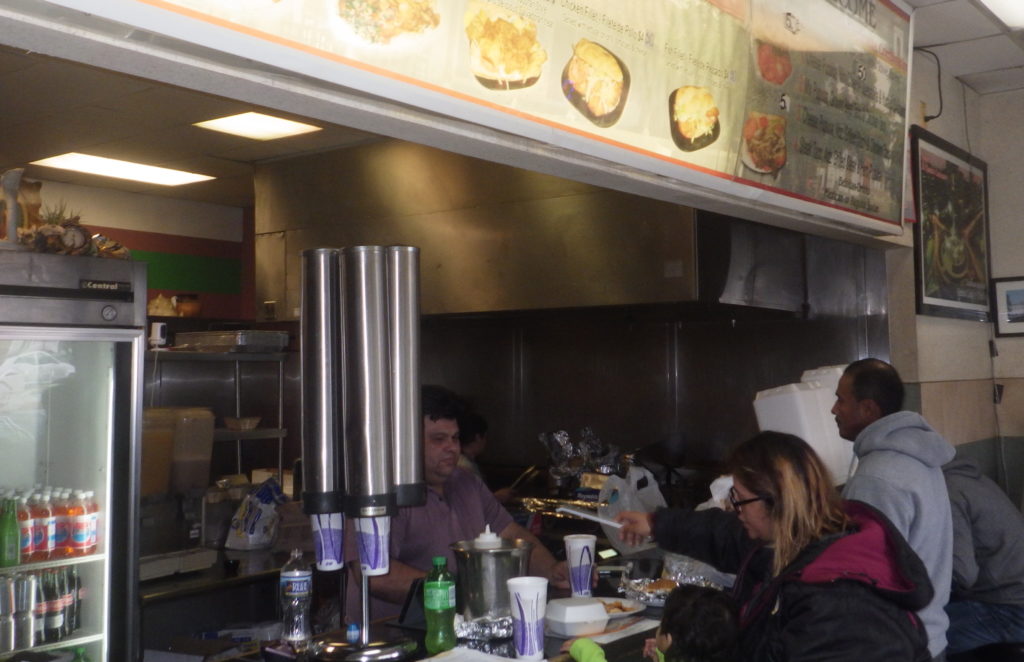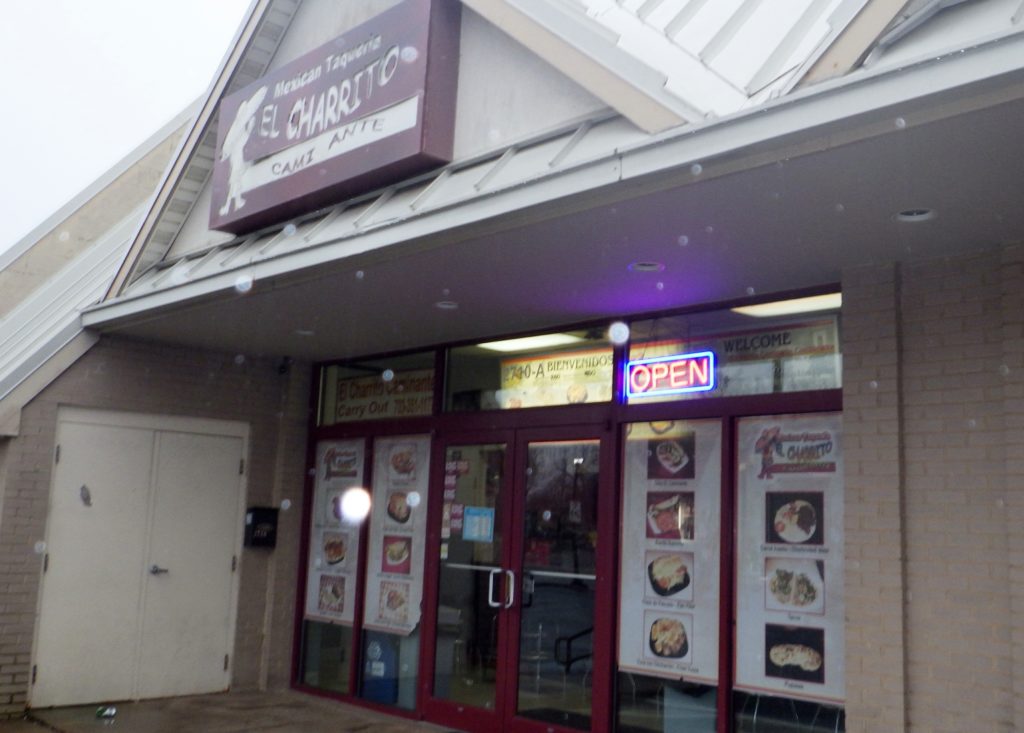The following feature article was funded by our new Patreon community. Want to see more articles like this, exploring important local topics that don’t make our usual news coverage? Join and help fund additional local journalism in Arlington.
Despite a dining space that’s limited to less than a dozen foot stools in a cramped row, few neighborhood eateries have had a more indelible effect on the community than El Charrito Caminante since its founding in 2000.
Unbeknownst to most of its customers, the hybrid Salvadoran-Mexican restaurant, located at 2710 Washington Boulevard, has a long history in Arlington’s food scene.
“What makes up for the space is they have a really friendly atmosphere,”said Jennifer Hernandez, who, like the owners of El Charrito Caminante, is Salvadoran. “The owners are really nice and acknowledge every single person who comes in.”
“I lived across the street for several years, from 2003 to 2006, and basically survived on it,” recalled former Arlington resident Evan Vischi.
Owner Jose Zalaya Sr. hails from San Miguel, El Salvador, and he faced quite the journey before founding the Lyon Park eatery. Even before the country faced a massive civil war in the 1980s, which led to a mass exodus of Salvadorans that continues to this day, the Zalaya clan was targeted by rebel insurgents.
“Anyone who owned land was in danger; we didn’t know anything about them or their names,” said Jose Jr., who plays a major role in managing the restaurant.
According to local resident Frick Curry, who worked as a foreign policy analyst for the Center for International Foreign Policy at the time, the military was closely aligned with a ruling class that consisted of an oligarchy of less than fifteen families.
“Being part of the opposition was really your only alternative because the elections were rigged and the economy of the country was run by the 14 families or their minions,” Curry said. “They did try to seize land from land owners and this is an issue still in Central America today because of the growing populations and the pressures on land.”
The Zalayas estimate half of the family was killed, in all. While Jose Sr. and his parents were spared, they no longer had a base of wealth.
Accordingly, Jose Sr. chose to head to America in 1976 at just 19 years old, leaving his pregnant wife behind. Unlike many immigrants from Central America, who rely on family to sponsor their journey to the U.S., Zalaya didn’t know anyone when he began his trip.
Instead, Jose Sr. got by thanks to the people he met along the way during his months-long journey, including a fellow traveler who linked him to his first construction job when he got to Northern Virginia.
Seven years after arriving here, Jose Sr. was able to send for his son, who was raised in Alexandria and went to Edison High School alongside his two younger sisters — one is in the military and the other is out of the restaurant business.
In the 1990s, Jose Sr. and his wife, Anna, opened up a food truck based on family recipes. They sold at the intersection of N. Pershing Drive and Arlington Boulevard with a customer base that was boosted by military personnel stationed at Joint Base Myer-Henderson Hall (then known just as Fort Myer). Jose Sr. estimates it was one of four or five food trucks in the county at the time.
But when the Zalayas decided to expand and open a brick-and-mortar restaurant in 2000, they never considered changing the menu.
“Around here, this was a close place where everyone in the neighborhood knew us, we didn’t want to change,” Jose Jr. said.
The menu is well-known for its authenticity. Dishes are referred to as “cabrito” for goat, or “gallina” for hen, rather than more palatable terms, like chicken or lamb.
The make of the sandwiches is very unconventional as well. Order the gallina sandwich and you will get red cabbage with slices of egg.
Jose Jr., who has been working since the age of 16, is often seen at the front taking orders. His father still works daily and can be seen in the back.
“Every time my dad came in, the owner [Jose Sr.] would have a conversation with him, so we’ve become personally loyal,” said Hernandez.
Vischi also remembers befriending Jose Jr., who never forgot him even once he moved away from Arlington.
“When I visited El Charrito [Caminante] in 2012, Jose had thought that I’d been absent for other reasons, but where I told him where I’d been [living in the Czech Republic], he refused payment for our meal, even refusing payment for a symbolic tip,” Vischi said.
The 2015 Census American Community Survey counted 288,000 Salvadoran residents in the D.C. metro area, accounting for one third of the region’s Hispanic community. It is also the highest population of Salvadorans in the nation.
As such, the local culinary scene is marked by plenty of other, long-standing Salvadoran restaurants, such as Pupuseria Dona Azucena (71 N Glebe Road), Restaurante El Salvador (4805 Columbia Pike), Sofia’s Pupuseria (3610 Columbia Pike), La Union (5517 Wilson Boulevard) and Atlacatl (4701 Columbia Pike).
“We have a lot of customers who aren’t Salvadoran because we’re in a primarily white neighborhood,”said Mexican-Salvadoran restaurant La Union manager Henry Gutierrez. “Salvadoran is a whole different cuisine than Mexican, which people are more familiar with, but people really like the steaks and shrimps and meats.”
When asked about expansion, Jose Jr. says the family has no plans — they have the perfect location in the neighborhood.



